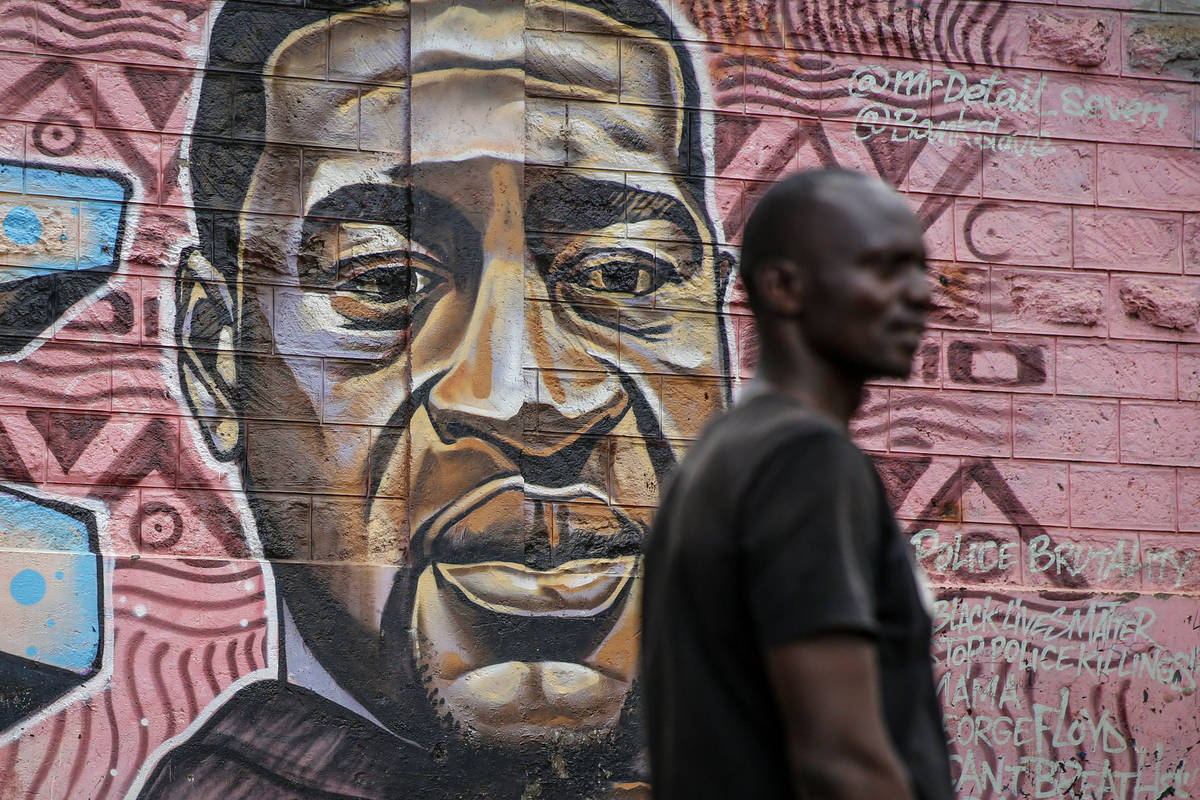COMMENTARY: Fixing a broken system
For three weeks in April, while Nevada legislators considered a mix of policing bills — some that would modestly enhance police accountability, others that would make matters worse — millions of people worldwide followed the trial that resulted in the murder conviction of former Minneapolis police officer Derek Chauvin, who killed George Floyd last year.
Floyd wasn’t a lone casualty of police violence. Contrary to what some lawmakers in Nevada and elsewhere suggest, the problem is institutional. It doesn’t just involve a few “bad apples.” Departmental cultures and institutionalized practices don’t ensure evenhanded respect for the sanctity of everybody’s lives and rights without regard to color, class, national origin and other factors that influence us all.
That so many people saw what happened and couldn’t ignore Chauvin’s cruelty is an exception. Officers are routinely shielded from accountability by flawed and inconsistently enforced departmental policies, labor contracts favoring police unions, police officer bills of rights enacted by pliant legislators, and prosecutors who almost never charge even the worst cops. All this hides abuse and creates a legal and extra-legal façade that affords near-blanket immunity to unfit officers who dishonor good ones.
Against this backdrop, when states and local municipalities nationwide are enacting bold policing reforms that include repealing overprotective police bills of rights, ending “qualified immunity” and enacting use-of-force standards with teeth, Nevada politicians are proposing much weaker changes. Meanwhile, Black and Brown bodies keep piling up and feeding corrosive distrust of law enforcement.
Worse, even moderate proposals in Carson City have been staunchly opposed by entrenched interests invested in maintaining the fundamentals of the status quo. Thus, these measures have been routinely watered down to satisfy the demands of police unions and executives, prosecutors and others who wield influence as a united front or in alliances that shift depending on whose prerogatives are circumscribed by particular bills.
Whatever the intentions of Nevada lawmakers who seem eager to pass some version of policing reform when constituents are calling for action, this legislative session has reverted to predictable form. Old-school dealmaking that privileges powerful insiders regularly substitutes for sound policymaking, as would-be legislative reformers refuse to stand up to police and prosecutors who spurn any game-changing measures.
Examples of this familiar pattern are dispiriting.
They include a bill mandating collection of vehicular and pedestrian stop and post-stop policing data broken down by race and other demographics. It didn’t require individual officer identifiers, independent researchers to consult police and community representatives to develop the protocols for gathering and analyzing the information or funding to ensure a study can be completed and an unbiased report published. Instead of adding these best practices, lawmakers capitulated to opponents’ demands by dropping the mandate that pedestrian stops be tracked, without which dangerous unconstitutional contacts will be ignored.
Another proposal requiring certain use-of-force policies is actually more a restatement of protocols that agencies have already adopted than a change establishing enforceable statewide standards in a uniform matrix specifying when using different levels of force is appropriate, a matrix that should be developed by professionals with community input to reduce excessive-force incidents. This appears to be another concession to anti-reform groups to temper opposition and gain their grudging support.
The bill originally included tortured qualified immunity language that modified but didn’t reject the concept outright, knowing that pursuing this crucial change would elicit exaggerated outcries on law enforcement’s part. The unwieldy provision was removed, yet not amended to nullify overly broad immunity that severely limits holding cops liable when they violate people’s rights. This will undoubtedly make enforcement of any use-of-force policies more difficult.
It isn’t that tinkering at the margins of a troubled policing system is pointless. Scaled-back proposals intended to strengthen body camera requirements, enhance public disclosure about police misconduct and require the tracking and interagency sharing of information on wrongdoing by individual cops are being considered and can help marginally improve police practices. Yet no one should pretend such unremarkable changes will fix what’s badly broken in policing.
Unless politicians take more seriously the voices of everyday people demanding transformational reform, and are willing to absorb the political costs of challenging formidable DA and law enforcement interests, stories of those whose heartbreaking losses are increasingly on display in the cellular age will continue to shake confidence in the police. Their numbers mount, and their message is amplified with each revelation of another horrifying incident.
Reform advocates insist it’s objectionable for lawmakers to treat policing as any other issue because we authorize officers to use force to detain, arrest and even kill people when they deem doing so “objectively reasonable.” A democracy must ensure that this awesome power is restrained and officers are held accountable when they misuse it, that they treat people based on what they do rather than who they are and that they resort to force only when it’s necessary to protect their or the public’s safety.
Real accountability shouldn’t be negotiable, and politicians shouldn’t ever give those defending a system in disrepair the ability to veto vital changes to “facilitate” supposedly “good deals.” Advocates for difference-making change have spoken. They expected legislators to at least fix weakened bills to incorporate best practices. The community is watching and won’t forget who failed to meet the challenge to act boldly in this moment of national reckoning.
Gary Peck is a longtime Southern Nevada civil rights advocate and former Nevada community representative on the U.S. Department of Justice Western Community Policing Board.






















